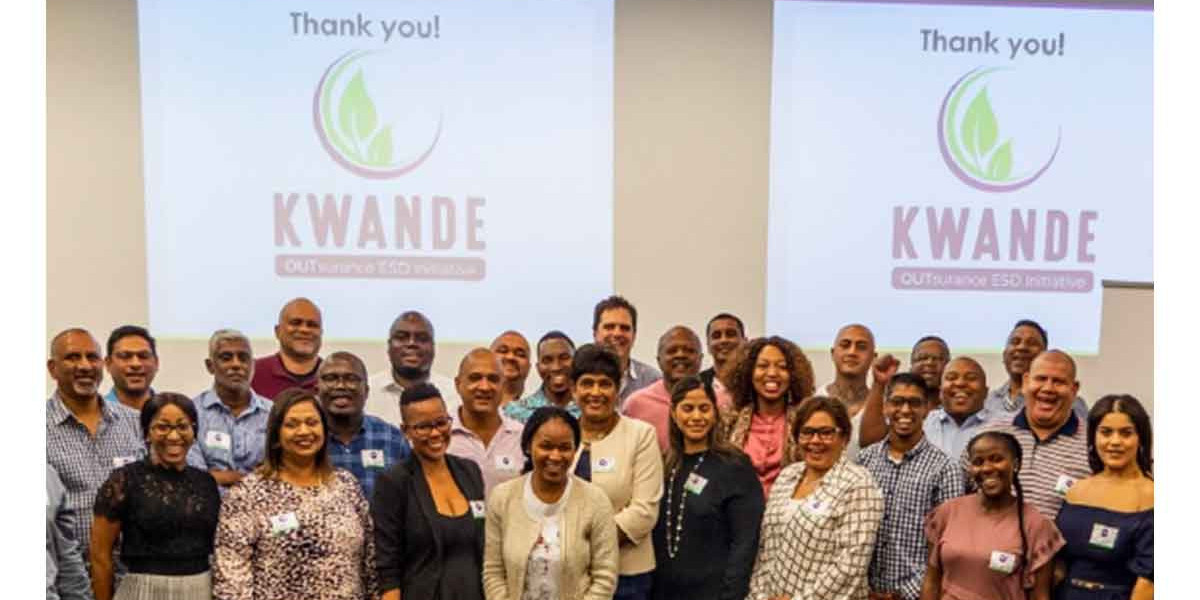The Rise of Female Entrepreneurs in South Africa
As South Africa celebrates Women’s Month this August, it's essential to shine a spotlight on one of the country’s most powerful engines for economic growth: women entrepreneurs. From informal markets to formal boardrooms, South African women are transforming the business landscape, driving community upliftment, and creating job opportunities that shape the nation's economic resilience.
Historically, women have been active contributors to the economy through informal trade, township enterprises, and cooperative businesses. Today, their influence extends across high-impact sectors—from mining and education to finance and technology. Their growing presence in leadership and innovation is not only noteworthy—it’s vital for long-term development.
Women Entrepreneurship: A Strategic Economic Priority
Dr. Omolola Arise, academic leader at the Mancosa School of Accounting, Finance and Tax, emphasizes that supporting women in business is more than just a social obligation—it’s a strategic imperative. “Celebrating and investing in women-led businesses fuels job creation, drives innovation, and builds economic sustainability,” she explains.
The push toward entrepreneurship in South Africa has become increasingly necessary due to the persistent unemployment crisis. In this context, entrepreneurship is no longer optional—it’s essential. Women are leading this shift with determination and creativity, proving themselves as key players in shaping South Africa’s economic future.
Breaking Barriers: South African Women Take the Lead
In 2025, 57% of South African women identified as business owners, exceeding the regional average of 51% in Eastern Europe, the Middle East, and Africa. This marks a significant rise from just 34% a few years ago. The most remarkable trend is the generational surge: 89% of Gen Z women are showing a keen interest in entrepreneurship, while 59% of both Gen X and millennial women already identify as entrepreneurs and community leaders.
Many women are also embracing side hustles as stepping stones to full-time entrepreneurship. Currently, 55% of women have supplementary businesses, with Gen X women leading at 58%. Their motivations are clear:
80% aim to increase their income,
52% seek financial independence, and
45% want to build a financial safety net.
These numbers reflect a cultural shift—not a passing trend. Women are intentionally reshaping their roles within households, communities, and the broader economy.
Transforming the Narrative: Women as Economic Architects
Women-led businesses may be smaller in size, but they often create more jobs, especially in socially impactful sectors like education, healthcare, and retail. Their focus on inclusive hiring, community development, and resilience during downturns gives them a competitive edge.
“Women entrepreneurs bring fresh, innovative perspectives and operate with empathy and purpose,” says Dr. Arise. “Their businesses are deeply rooted in social impact and inclusive economic growth.”
However, access to finance remains a significant hurdle. Gender biases in traditional financial institutions, lack of collateral, and structural inequalities create barriers to funding. Yet, innovation is opening new doors.
Innovative Financial Models Empowering Women
To bridge the gender credit gap, women are increasingly turning to alternative financing models:
Crowdfunding platforms allow them to raise capital while building community support.
Peer-to-peer lending offers decentralized, flexible funding options.
Blockchain solutions, including smart contracts and digital identities, ensure secure, transparent lending even without traditional credit histories.
At Mancosa, these models are incorporated into financial technology training programs to equip women with tools to scale their businesses.
The Long-Term Impact of Women in Business
Despite challenges, the long-term economic impact of women entrepreneurs is undeniable. They invest back into their communities—promoting education, skills development, and social mobility. This leads to a more skilled and inclusive workforce, helping to reduce gender inequality and foster sustainable growth.
Policymakers must prioritize:
Gender-focused finance and support,
Credit guarantee schemes and equity crowdfunding,
Tailored mentorship and skills development programs,
Simplified regulatory frameworks for women-led SMEs.
Existing programs such as the Isivande Women’s Fund, Black Industrialists Scheme, and the Women’s Development Bank are already laying the foundation. However, expanding and strengthening these initiatives is critical for long-term success.
Leadership Development Through Education
Mancosa, established post-apartheid, has always championed equal access to education and leadership development. Its School of Business offers programs specifically designed to empower women, including:
Women in Leadership Accelerator
Emerging Leaders Programme
Digital Business Masterclasses
These initiatives offer hands-on skills, mentorship, and real-world business support. With online learning, virtual internships, and a strong focus on innovation, Mancosa equips Gen Z and millennial women to navigate Africa’s evolving business environment with confidence.
Additionally, Mancosa’s Centres of Excellence serve as research and innovation hubs, generating policies that address national and regional economic challenges. The institution’s MBA and DBA programs prepare graduates to:
Lead sustainable business development,
Advance financial inclusion via fintech,
Influence policy through actionable research.
Toward an Inclusive, Entrepreneurial Future
South African women entrepreneurs have shifted from being marginal players to becoming core architects of the country’s economic future. Although they represent just 21.1% of formal SMEs, their impact on job creation, GDP growth, and community empowerment is far-reaching.
The next decade offers unprecedented opportunities for scaling women-owned enterprises. Removing the remaining barriers—especially access to finance and policy support—will determine South Africa’s success in building a more inclusive, resilient, and innovation-driven economy.
Empowering women entrepreneurs is not just about gender equality—it is a national economic priority. By unlocking their full potential, South Africa can transform its entrepreneurial landscape and ensure a brighter, more equitable future for all.
Tags:




